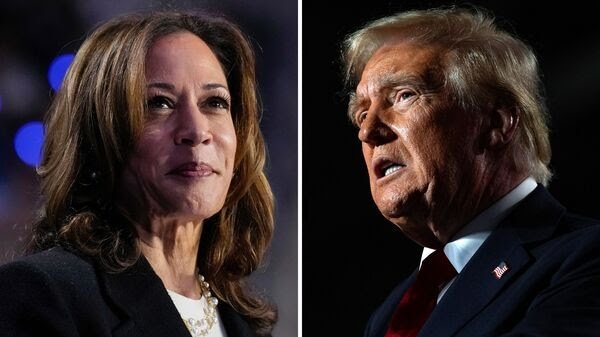Global Economic Power Shift Awaits Winner: Trump or Harris
Amid the gripping narrative of the 2024 Presidential elections, the world watches as the global economic landscape stands on the brink of a seismic shift. Whether it will be the seasoned policies of Donald Trump or the progressive perspectives of Kamala Harris, the economic consequences of this choice will ripple across continents and markets. As both candidates chart their paths towards potential leadership, the stakes have never been higher in defining America’s role in an evolving global economy.
The Unraveling Global Economic Order
The international economic stage is experiencing unprecedented changes, with nations like China and India gaining momentum. Both Trump and Harris will grapple with the emergence of new economic powers capable of challenging the traditional dominance of Western economies. Observers highlight several key trends influencing this shift:
- The Rise of Asia: With the rapid development of Asian economies, there’s a noticeable shift in trade dynamics, production capabilities, and consumer markets towards the East.
- Technological Innovation: Countries investing heavily in technology, such as artificial intelligence and green energy, are poised to redefine economic supremacy.
- Geopolitical Tensions: Ongoing conflicts and partnerships are reshaping global alliances, affecting trade agreements and economic collaborations.
Potential Approaches and Policies
Both candidates bring their own strategies and policies to address these challenges:
Donald Trump’s Stance
Donald Trump is known for his America-first philosophy. His policies may likely focus on:
- Reasserting U.S. Competitiveness: Through tariffs and renegotiated trade deals, Trump aims to protect American industries and jobs.
- Energy Independence: Advocating for traditional energy sources to ensure national security and economic resilience.
- Tax Incentives: Proposing measures that attract domestic manufacturing and deter outsourcing.
Kamala Harris’ Vision
Kamala Harris emphasizes a more inclusive and forward-thinking approach:
- Global Cooperation: Strengthening alliances and multilateral institutions to tackle shared challenges like climate change.
- Green Economy: Investing in renewable energy and sustainable practices to drive economic growth and innovation.
- Equitable Policies: Focusing on policies that aim to bridge income disparities and promote social justice domestically and globally.
The Broader Implications for America
The winner of the 2024 election will not only shape national policy but also influence America’s global economic role in unprecedented ways. Their ability to navigate:
- The tension between globalization and nationalism
- The challenges of technological automation
- Cohesion with international partners
will inevitably affect the United States’ standing in the world economy.
Preparing for the Future
Businesses and investors are keeping a close eye on potential policy shifts, as the decisions made by either Trump or Harris could dictate market trends and investment opportunities. As the world transitions through post-pandemic recovery phases, the U.S.’s strategic choices will become a barometer for economic health.
Whether it is Trump’s assertive economic protectionism or Harris’ inclusive global strategies, the election’s outcome will echo far beyond America’s shores. This electoral showdown will not only redefine U.S. economic policies but also reshape the global economic power structure for years to come.



